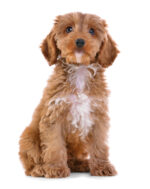It can be quite disheartening when a beloved furry family member starts showing their age. Your older dog or cat may be slowing down, becoming weaker, and showing vulnerability to things like infections and anxiety. Their temperament can also change which means that you may need to adapt their lifestyle to help them settle any potential mood changes.
Keep in mind the following factors, so that you can help keep them happy and ageing gracefully.
My Older Dog or Cat – The Animal Aging Process
Your older dog or cat can be considered senior from around the age of seven. For larger breeds this may be slightly earlier. It’s likely to be a very gradual process of ageing, so gradual that you may not even notice they’re having trouble at first. Cats and dogs are known to hide essential signs of ageing and act as though everything is normal when it may be otherwise. They can especially be prone to hide any pain and discomfort from their owners so be sure you know the signs so you can help them if need be.
How to Tell if My Pet Is Getting Older
Your pet may experience the following things as they start to get older:
- Hearing and vision loss.
- Loss of appetite.
- Less of a willingness and ability to keep grooming themselves effectively.
- Struggle with moving, climbing the stairs or jumping.
- Dizziness and behavioural changes.
- Weight gain.
- Urinary incontinence, typically shown more in dogs.
- Higher chance of chronic health problems, such as kidney failure, diabetes and cancer.
How to Manage My Older Dog or Cat’s Weight
It’s best to always speak to your local veterinary practice if you are concerned about your older dog or cat’s weight. They may suggest a different food routine, or advise moving to a senior diet which contains fewer calories. Some vets also offer complimentary weight checks. Keeping on top of their weight can also help find early signs of illness.
Grooming My Older Dog or Cat
Dogs and cats are usually so hot on their grooming routines, however when they age their mobility issues can make grooming so much harder for them. This could mean they start to get dry skin or matting clumps on their fur which can be incredibly painful to groom out. Routine brushing and bathing of your older dog or cat can help prevent matting from occurring the first place, and is also a good way to check their skin for any unusual lumps or bumps.
Taking your pet to your local vet for regular nail clips can also be beneficial and is something many practices now offer in their Pet Health Plan. Keeping your senior pets nails short can prevent them growing thick and brittle. View our list of accredited practices who offer Pet Health Plans.
It’s important to check which insurance policy you are on if you have an older dog or cat, or if they are due to become senior in the next year or so. As they age they have different needs so be sure that the policy you have is right for them. It’s is good to remember that all Vetsure policies are lifelong and Accident Only policies insure pets regardless of their age, so you can always have peace of mind if your pet suffers an unfortunate accident.
 The Vetsure Network
The Vetsure Network  Find a Vet Clinic
Find a Vet Clinic 